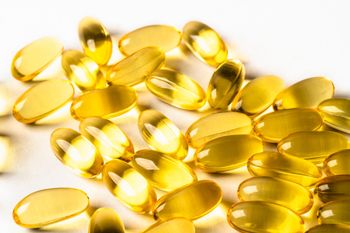
New Study Looks at Whether Health Food Stores Recommend Creatine, Testosterone Boosters to Teenage Boys
The authors of a new study published in Pediatrics state that teenagers may not get the advice they need in order to use these supplements properly.
Some teenagers-particularly teenage male athletes-use dietary supplements like protein and creatine in an effort to build muscle and gain weight. While it is perfectly legal for minors to purchase these supplements, the authors of a new study published in Pediatrics1claim that teenagers may not get the advice they need in order to use these supplements properly. In the Pediatrics study, the researchers decided to test whether health food store associates would recommend creatine or testosterone-boosting supplements to adolescents in the first place. Their methodology entailed a 20-year-old male researcher posing as a 15-year-old football player and contacting 244 health food stores by phone to see if sales attendants would recommend a creatine or testosterone-booster supplement to a teenager.
The male researcher posing as a teenager contacted 244 health food stores across 49 U.S. states via phone during August 2014. While on the phone, the “teenager” asked sales associates for recommendations on which supplements to take to assist him in strength training. If the sales associate did not initially recommend a creatine and/or testosterone-boosting supplement, the researcher asked the sales associate directly about those two supplements and whether he should take them as well as whether he could purchase them without adult supervision.
According to researchers, 67.2% of all sales attendants contacted recommended that a 15-year-old boy take creatine. Only 30.3% of the sales attendants recommended against the teen taking creatine, and 2.5% refused to make a recommendation over the phone.
Fewer sales associates recommended taking a testosterone booster. Only 9.8% of sales associates recommended a testosterone booster to the teen, with 88.5% of sales attendants recommending against taking a testosterone booster and 1.2% refusing to make a recommendation over the phone.
Regarding the question of whether a minor can purchase these products, 74.2% of associates said the 15-year-old was allowed to buy creatine, while 41.4% said he could buy a testosterone booster.
The researchers stated that while there isn’t much hard evidence showing negative effects of adolescent creatine use, there are anecdotal reports of adverse effects of creatine use in general, such as impaired hepatic and renal function and dehydration and muscle cramping. In addition, they cited a studying showing that a high percentage of high-school-aged creatine users may be taking a higher dose than recommended.
“These results suggest a great deal of misinformation among high school athletes regarding creatine use,” the researchers wrote.
In in terms of testosterone boosters, the researchers stated that adverse effects from testosterone boosters can include increased blood viscosity, prostatic hyperplasia, and development of sleep apnea.
The researchers noted that recommendations that teens take creatine run counter to what several medical bodies advise. “Despite the American Academy of Pediatrics’ and the American College of Sports Medicine’s recommendations against adolescent use of creatine and testosterone boosters, most health food stores recommended ≥1 of these products to a young teenage boy…. Thus, recommendations from sales staff that run counter to product labeling and expert medical opinion pose potentially significant risks to young teenagers who use create and/or testosterone boosters.”
In their conclusions, the researchers recommended that pediatricians should do a better job informing teenage patients, especially athletes, about the risks and safe use of creatine supplements and testosterone boosters. They also recommended that retailers “give serious consideration to revising their policies regarding recommending products like these to minors.” Finally, they made a drastic recommendation that retailers and state legislators consider banning minors from being able to purchase these two types of supplements.
Steve Mister, president and CEO of the Council for Responsible Nutrition (CRN; Washington, DC), issued a statement in response to the Pediatrics study. He agreed that adolescents should discuss the use of dietary supplements with an adult; moreover, he noted that creatine does have health benefits when used correctly.
“Dietary supplements, including creatine, can play a valuable role in supporting healthy lifestyles for people of all ages, and it is especially important for younger populations-such as adolescents and teenagers-to discuss their dietary supplement use with their parents, coaches, doctors, or other healthcare practitioners,” said Mister. “As with any supplement, creatine is intended to supplement a healthy diet in combination with other healthy habits. Creatine-or any sport supplement-is not a shortcut or a substitute for the hard work and training that is required to excel in athletics.”
He added that even if some supplement manufacturers prefer “out of an overabundance of caution” to label creatine products with a warning against use by minors, in actuality there is “no known safety issue” associated with using creatine.
“Retailers can be an important resource for consumers when it comes to making health decisions, and so we urge retailers to be part of the efforts to educate consumers on smart dietary supplement use, including encouraging consumers to open a dialogue with an on-staff pharmacist or registered dietitian, or their own doctor or other healthcare practitioners,” said Mister.
Editor-in-Chief
Nutritional Outlook magazine
jennifer.grebow@ubm.com
References:
- Herriman M et al., “Dietary supplements and young teens: misinformation and access provided by retailers,” Pediatrics. Published online January 2, 2017.
Newsletter
From ingredient science to consumer trends, get the intel you need to stay competitive in the nutrition space—subscribe now to Nutritional Outlook.





